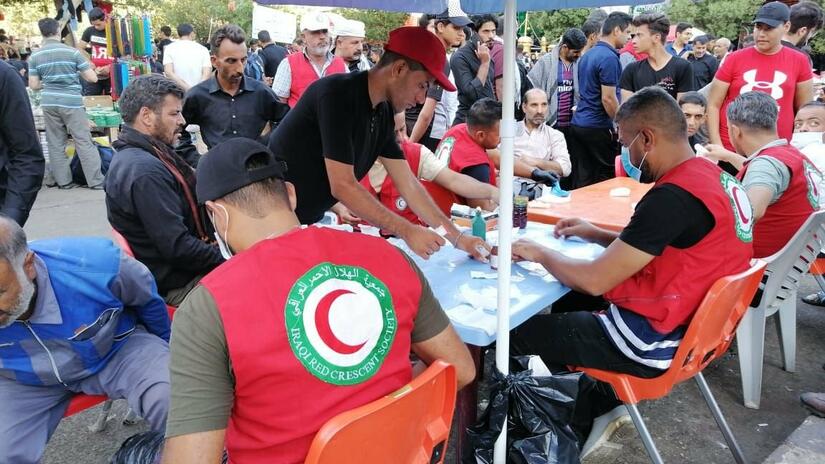By Rana Sidani Cassou
Iraq Red Crescent Society relief operations to support people affected by recent demonstrations in the country have received a boost from the International Federation of Red Cross and Red Crescent Societies (IFRC).
More than 150,000 Swiss francs have been released from IFRC’s Disaster Relief Emergency Fund to help the Iraq Red Crescent to continue its humanitarian support.
Since the start of the protests on 1 October, more than 200 Iraq Red Crescent volunteers have been mobilized to provide first aid to the injured, give psychosocial support, and medical evacuations. A total of nine branches have been involved in the response. The demonstrations have involved clashes that have resulted in several deaths, and many thousands of people have been injured.
The emergency funds will further strengthen IRCS capacity and ensure continuity of first aid and pre-hospital care to people at risk of being affected by possible unrest in the main cities of the country.
Meanwhile, and in the coming three days, millions of people from around the world are expected to arrive at Karbala city, 100 kilometers southwest of Baghdad, to visit the shrines of Imam Hussein and Abbas. Some of the pilgrims make their journey on foot from cities as far as Basra, about 500 kilometers away.
“Every year, we mobilize all our volunteers and employees to minimize the risks that might arise during this mass gathering,” said Dr. Yaseen Abbas, President of IRCS. “Some people walk for days including elderly, children and patients suffering from chronic diseases. We provide them with first aid, medical treatment all along their journey.”
With the participation of more than 2,000 staff and volunteers, IRCS installed more than 100 emergency health mobile and fixed posts in Karbala and on the roads that leads to it. So far more than 24,000 people have benefited from IRCS first aid, blood pressure measurement, evacuation to hospitals and awareness activities.
The location where pilgrims will arrive at the end of their journey is only accessible by foot. For that reason, more than 100 volunteers are there ready with stretches to evacuate people suffering from fatigue to the ambulances parked nearby. Two mobile hospitals have been deployed to the area as well.
In addition, more than 50 volunteers have one task: look for missing people, mainly children, who might be separated from their parents because of the huge number of people gathered in the same place.
Article
IFRC condemns killing of Sudanese Red Crescent volunteer while on duty
IFRC condemns killing of Sudanese Red Crescent volunteer while on duty
| Article

